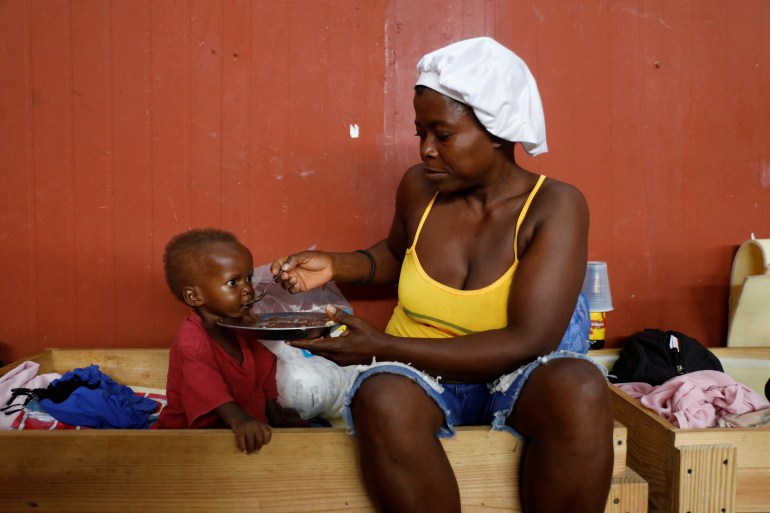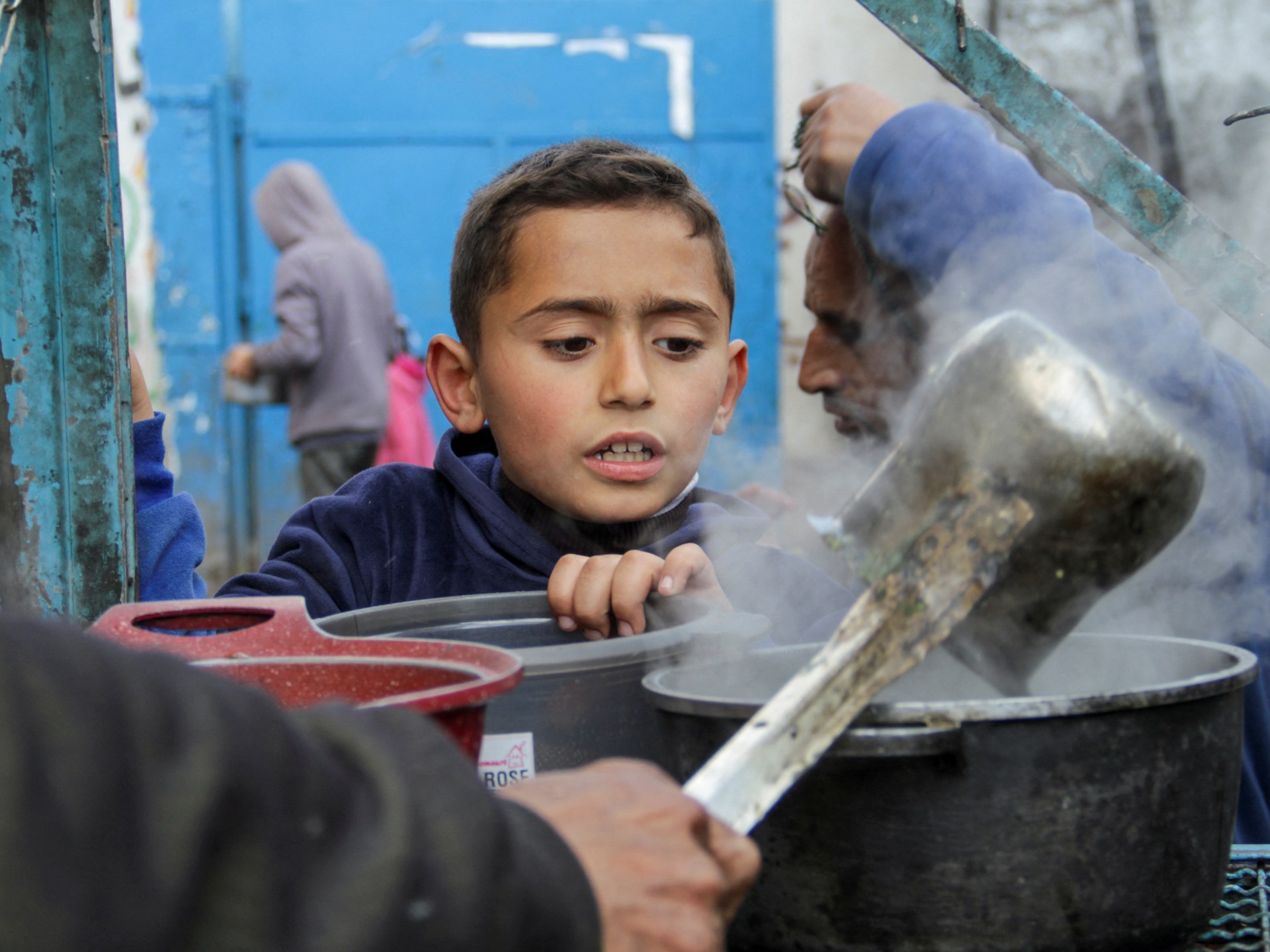Food insecurity worsened around the world in 2023, with about 282 million people suffering from acute hunger due to conflicts, particularly in Gaza and Sudan, according to United Nations agencies and development groups.
Extreme weather events and economic shocks added to the number of those facing acute food insecurity, which grew by 24 million people compared with 2022, according to a global report on food crises from the Food Security Information Network (FSIN) published on Wednesday.
The report, which called the global outlook “bleak” for this year, is produced for an international alliance bringing together UN agencies, the European Union and governmental and non-governmental bodies.
The year 2023 was the fifth consecutive one with a rising number of people suffering acute food insecurity – defined as when populations face food deprivation that threatens lives or livelihoods, regardless of the causes or length of time.
Much of last year’s increase was due to the report’s expanded geographic coverage and deteriorating conditions in 12 countries.
More geographical areas experienced “new or intensified shocks” while there was a “marked deterioration in key food crisis contexts such as Sudan and the Gaza Strip”, Fleur Wouterse, deputy director of the emergencies office within the UN’s Food and Agricultural Organization (FAO), told the AFP news agency.
Brink of starvation in Gaza
About 700,000 people, including 600,000 in Gaza, were on the brink of starvation last year, a figure that has since climbed yet higher to 1.1 million in the war-ridden Palestinian territory.
Since the first report by the Global Network Against Food Crises covering 2016, the number of food-insecure people has risen from 108 million to 282 million, Wouterse said.
Meanwhile, the share of the population affected within the areas concerned has doubled from 11 percent to 22 percent, she added.
Protracted major food crises are ongoing in Afghanistan, the Democratic Republic of Congo, Ethiopia, Nigeria, Syria and Yemen.
“In a world of plenty, children are starving to death,” wrote UN Secretary-General Antonio Guterres in the report’s foreword.
“War, climate chaos and a cost-of-living crisis – combined with inadequate action – mean that almost 300 million people faced acute food crisis in 2023,” he said, adding that “funding is not keeping pace with need”.
Call for end of hostilities
For 2024, progress will depend on the end of hostilities, said Wouterse, who stressed that aid could “rapidly” alleviate the crisis in Gaza or Sudan, for example, once humanitarian access to the areas is possible.
Worsening conditions in Haiti were due to political instability and reduced agricultural production, “where in the breadbasket of the Artibonite Valley, armed groups have seized agricultural land and stolen crops”, Wouterse said.

The El Nino weather phenomenon could also lead to severe drought in West and Southern Africa, she added.
According to the report, situations of conflict or insecurity have become the main cause of acute hunger in 20 countries or territories, where 135 million people have suffered.
Extreme climatic events such as floods or droughts were the main cause of acute food insecurity for 72 million people in 18 countries, while economic shocks pushed 75 million people into this situation in 21 countries.
“Decreasing global food prices did not transmit to low-income, import-dependent countries,” said the report.
At the same time, high debt levels “limited government options to mitigate the effects of high prices”.
The situation improved in 2023 in 17 countries, including the DR Congo and Ukraine, the report found.
Check out our Latest News and Follow us at Facebook
Original Source

